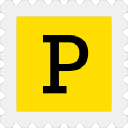On Starting An All-In-One Agency Management Software
My name is Robin Vander Heyden and together with Gabriel Lecointere, I co-founded ManyRequests, an all-in-one agency management software.
ManyRequests helps creative and marketing agencies organize their business by having everything in one place: Clients, requests, billing, files, dashboards, checkout forms, and a fully customizable client portal.
Our software helps these agencies get organized and save time, which in turn helps them delight their existing clients and sell more.
Since we started in early 2020 we’ve acquired 1000+ agencies which in turn have more than 10,000 clients using our software daily.

What's your backstory and how did you get into entrepreneurship?
Before starting ManyRequests, I built two service-based businesses:
- Sorry, you need to login and/or become a member to view the rest of this content.















